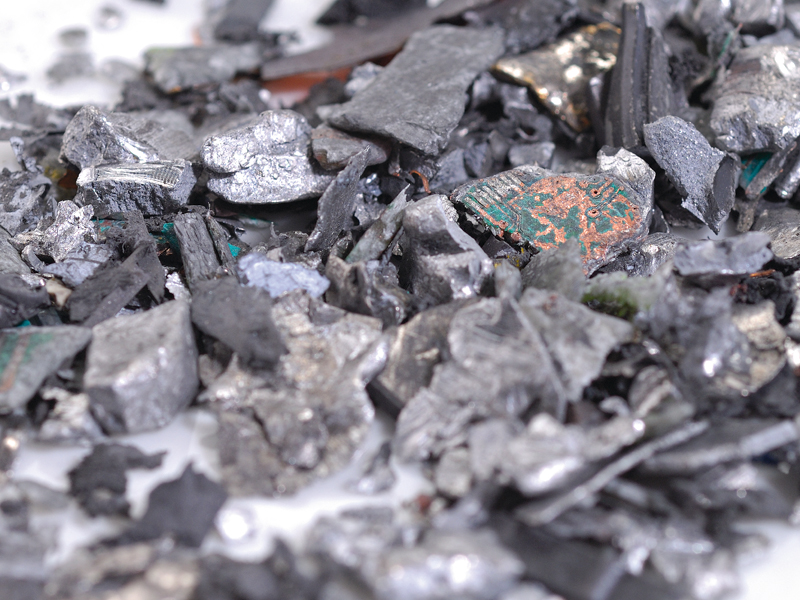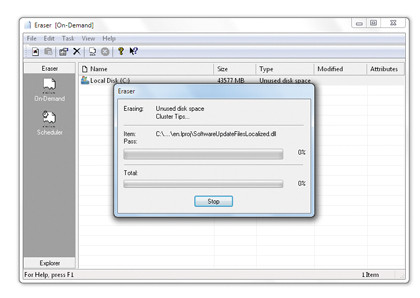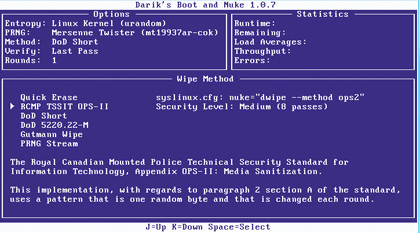
If you handle a lot of sensitive personal data on your PC, how can you be sure that it's completely gone?
It's worth considering the analogy of a sensitive message written on a piece of paper. To dispose of it, you could screw it up and put it in the bin. You could also shred it in several different ways, or you could totally destroy the paper by burning it or blending it in water to make a pulp.
In the first case, if you have access to the bin, it's pretty easy to fish the paper out and unscrew it. For shredded paper, if you have enough patience you could just about piece it back together, given time and a suitable sticky surface. For totally destroyed paper it's close to impossible to restore it and find out what its contents were.
There are similar disposal options available to you with a PC's data. You can delete a file, but it can easily be retrieved from the Recycle Bin. Even if you empty the bin, the data persists on your hard drive and a simple undelete utility such as PC Inspector File Recovery can retrieve it.
Even if the data has been overwritten, it's possible to use similar software to retrieve it. Therefore simple deletion is about as secure as throwing a piece of paper away.
Chop and change
For many, a digital shredding option will provide sufficient security. There are several such tools available, including Eraser.
Sign up for breaking news, reviews, opinion, top tech deals, and more.
These overwrite the data multiple times with random information, rendering it extremely difficult to recover. Given enough resources and time it may still be possible to retrieve the original data, but it will be hidden among enough noise for it to be a very expensive process.

ERASER-HEAD: If you're concerned about privacy, tools such as Eraser make it very difficult for anyone to recover deleted files
You can use Eraser to delete a list of files securely, or to erase the free space on a hard drive to ensure that it becomes extremely difficult to recover data that's already been deleted. If the hard drive is going to be changing hands, you may want to ensure that all data on it is shredded.
It's easy to overlook one or two files or forget the traces left by items such as the internet cache. You can do this by using Darik's Boot and Nuke; a boot disc that runs a shredding program to overwrite everything on the hard drive multiple times.
Just write the ISO file to a CD, boot from it and follow the instructions. Again, given unlimited resources and time, it may be possible to retrieve the data that was on a hard drive before it was nuked in this way, but it would be expensive and very time-consuming.
The final option is to destroy the hard drive containing the data. If the platters containing the data are completely destroyed, it's as difficult to restore the data as it is to get a piece of paper back from its ashes.
For a simple DIY solution, wipe the drive using Darik's Boot and Nuke and then drill through the body of the hard drive several times to destroy it.

BOOT-EM AND NUKE-EM: Darik's Boot and Nuke disc enables you to wipe a hard drive completely
Commercial solutions are also available, and Secure IT Disposals Ltd will mash a hard drive into granules. The page includes a video of a hard drive being shredded by the company's industrial machinery. It's hard to imagine data ever being recovered after this treatment.
-------------------------------------------------------------------------------------------------------
First published in PC Plus Issue 291
Liked this? Then check out How to use encryption to secure your data
Sign up for TechRadar's free Weird Week in Tech newsletter
Get the oddest tech stories of the week, plus the most popular news and reviews delivered straight to your inbox. Sign up at http://www.techradar.com/register